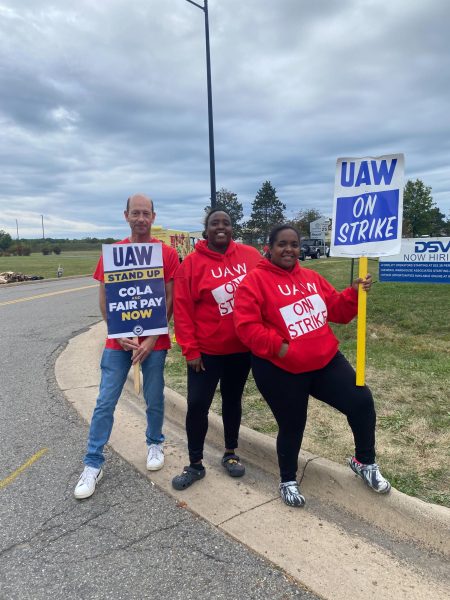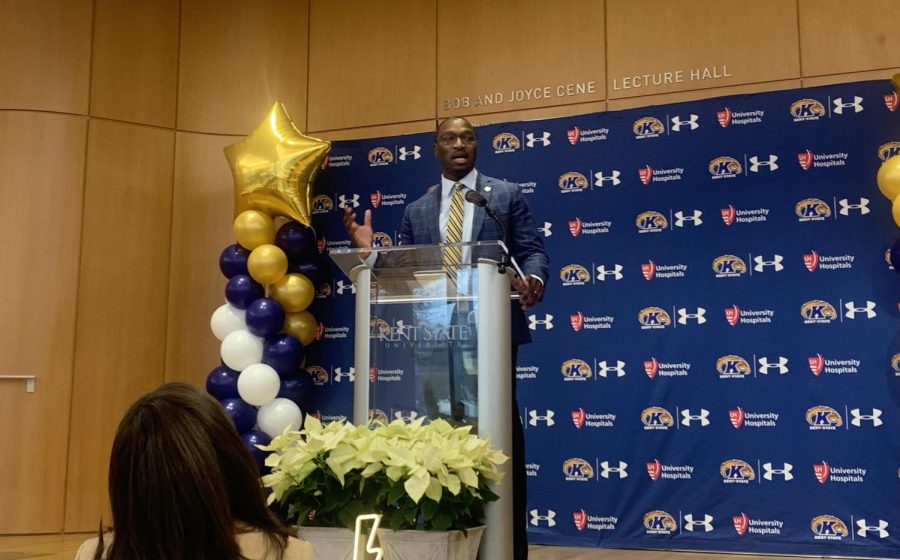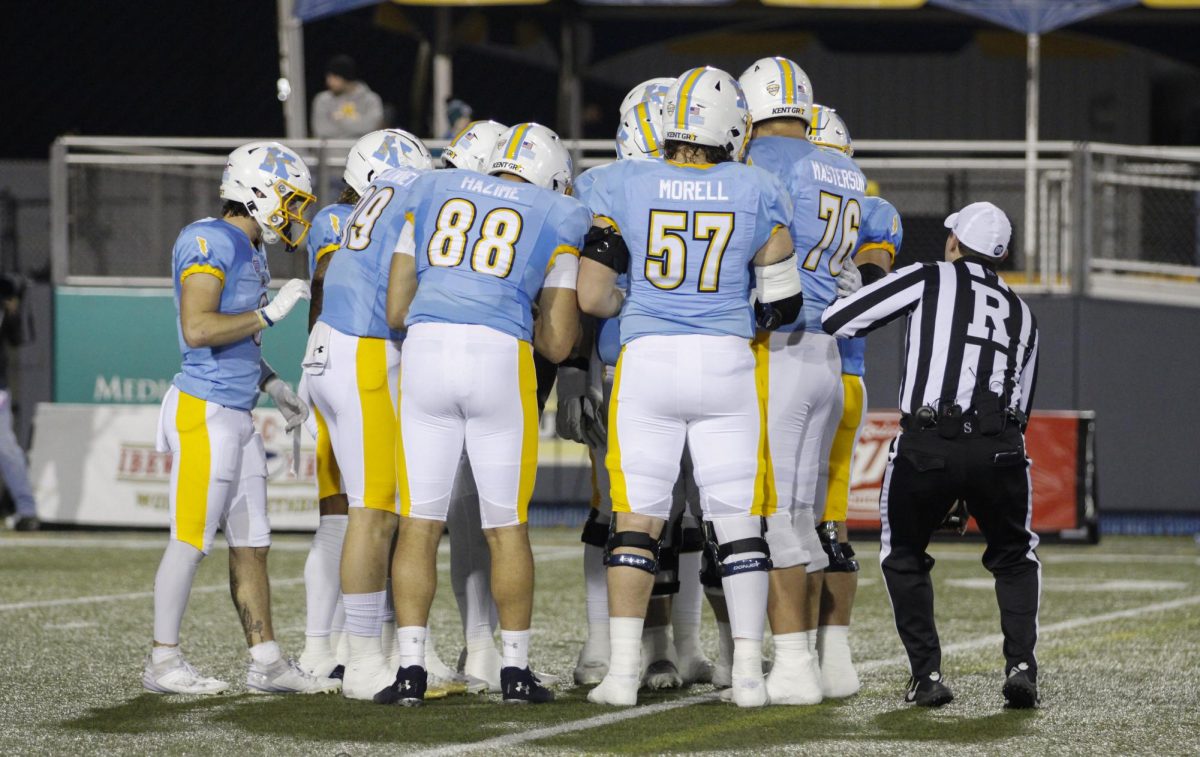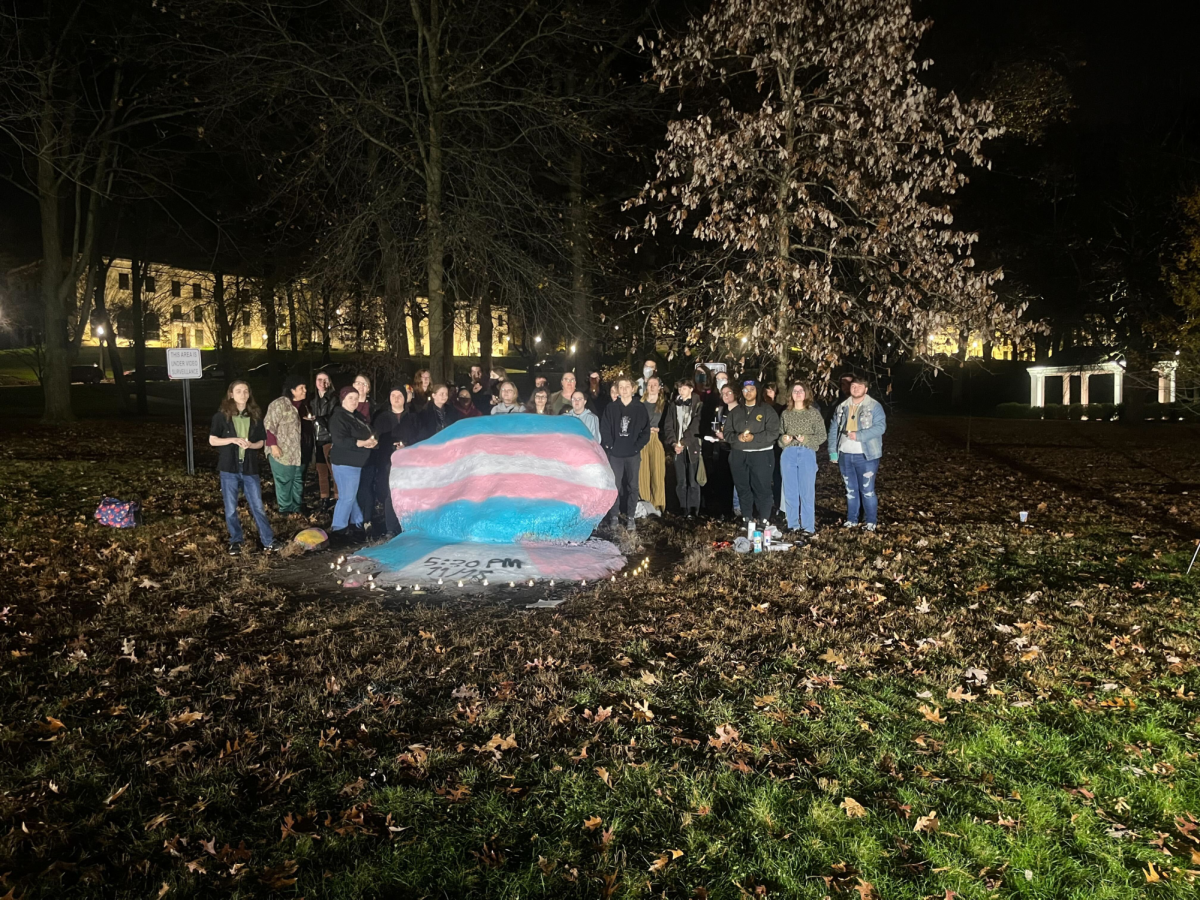On Sept. 15, the United Auto Workers, also known as the UAW, launched their walkouts against the big three automakers: General Motors, Stellantis and Ford. Since then, the UAW has halted operations at one assembly plant from each company and 38 parts distribution centers for GM and Stellantis nationwide.
The UAW requested wage increases, the restoration of pension, the abolishment of the tier system, a return of cost of living adjustments and other benefits during bargaining negotiations but no compromise was met.
Last Friday in Streetsboro at one Stellantis parts distribution plant, UAW workers walked out and began to strike.
Since then, members of the union have been picketing 24 hours a day, every day and are determined to stay on strike until their demands are met.
“We are in it for the long run and we are not giving up,” Beverly Wilson, UAW strike captain at the Streetsboro site, said.

Wilson went on to discuss how the strike came about and why the union is asking for these things.
“In 2007, we gave up all these concessions to save the companies from going bankrupt, so they were supposed to give it all back, but they did not,” she said. “They’ve been making big profits from us, but they stole all the stuff we gave up.”
In the past years, superiors at the auto companies have seen about a 40% wage increase. However, the workers have not seen a pay increase.
No settlement has been made, but the union has seen a response from Ford. The automaker company has met parts of the UAW’s request and abolished the tier system.
The tier system allows new workers to come in and earn less pay then a veteran worker, even if the two individuals are doing the same job. The tier system also allows veteran workers to have more benefits then newer hires.
The progress made by Ford is “a big step,” but it is not enough to satisfy the UAW, Wilson said.
Richard Klaben, president of Klaben Ford in Kent, talked about the impact of the strike on his dealership and how manufacturers are working to settle.
“The manufacturers that we represent have been working very diligently from the very beginning to settle,” Klaben said. “The manufacturers do not want a strike.”
Klaben said the situation is a lose-lose, and the sooner they are able to settle, the better off everyone will be.
“We don’t want to be out here,” Wilson said. “We all would rather be in there working, but we’re out here because we have to. This is not our plan, the companies left us no choice.”
Klaben said the strike may make getting cars serviced or buying a new car difficult, if not impossible, for customers.
“Some parts, it’s impacting right away, the longer it goes on, the more it will impact,” Klaben said. “If we were stocking a part and we sold it, we wouldn’t be able to replace it or at least replace it as quickly as we could.”
Part of the settlement the UAW is requesting will result in an increase in pay and benefits. With this in mind, this increase will ultimately get passed onto the consumer, Klaben said.
Klaben said the strike will create a domino effect on the economy and have tremendous impacts on more people than just those on strike.
“When you shut down a major plant, you have to think about every supplier, from the people who supply the nuts and bolts to the parts that go into the vehicle,” Klaben said. “It goes backwards and then they have to go to their vendors and so on.”
The strike at Streetsboro has seen support not only from union members, but also from the community.
“We have had several community people and a whole lot of people in general that support our strike and our causes,” Wilson said. “They have been stopping by, walking the picket line with us, bringing in water and food.”
Kent State economics professor Kathryn Wilson said the strike can possibly impact other markets in the future.
“If the union negotiates a really good contract, I would expect we might see more labor unions going on strike or trying to emulate what we see,” Kathryn Wilson said.
Beverly Wilson wanted to make it clear the UAW is fighting for what they deserve.
“It’s important for the future generations,” she said. “If we don’t fight now, trying to get back what we gave up and to better ourselves, we never will.”
Adrianna Quinlan is a reporter. Contact her at [email protected].







